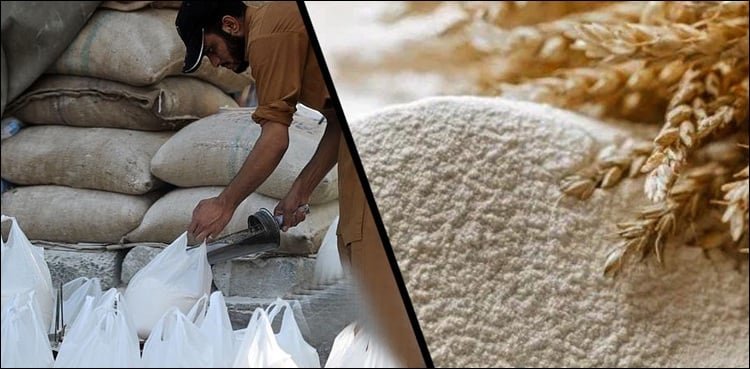The flour mills stop their strike temporarily.


KARACHI: The Pakistan Flour Mills Association (PFMA) has called off a strike after senior government officials of Prime Minister Shehbaz Sharif on Saturday assured the association that their grievances would be addressed within 10 days.Vice President of PFMA Central Chaudhary Amir Abdullah told The Express Tribune that the flour mills have postponed the strike on the condition that the tax issues are resolved amicably within 10 days."However, if our demands are not met within 10 days (until July 22), we will continue the strike. However, for now, all flour mills should continue to grind wheat to restore the availability of the staple food nationwide ," he said.
In a brief statement, the PFMA said: “Following the Prime Minister"s intervention, a committee was formed to help us normalize the withheld taxes as per our common understanding. The prime minister confirmed this."The members of the committee include law minister Azam Nazeer Tarar; finance minister Ahad Khan Cheema; revenue chairman Malik Amjed Zubair Tiwana and PFMA president Central Asim Raza Ahmed.The association. closed flour mills on Thursday and said it will continue to protest until the government scraps the newly introduced withholding tax (WHT) and suspends its proposal for mills to collect mills on their behalf.customers including flour wholesalers.The government has imposed absurdly more high taxes on those who remained to buy flour, affecting the poorest section of society the most.
From 1 July 2024, imposed a 5.5% withholding tax on flour - 2.5% WHT for flour .sellers (non-taxable) and 2% for wholesalers (non-taxable -filters) Also for retailers (tax filers) established 0.5% WHT and for wholesalers (taxable filters) 0.10%.Officials of the Association said that the new taxes make wheat flour 8-10 rupees/kg more expensive and that bread would be unaffordable in the current era of high inflation.They said the organization has played a major role in bringing down flour prices from Rs 150-175/kg to below Rs 100/kg, but the new taxes mark their efforts to provide affordable bread to the masses.They said they lowered flour prices by importing wheat from abroad instead of buying more expensive wheat from the government under a quota system.
PFMA also has reservations about becoming a tax agent. Such a move could cause them serious legal problems and a law and order situation as many factories sell basic products directly to individual retailers. "Why is the government making it difficult for the flour mills? If the FBR wants to collect the tax, it should do it itself," asked the PFMA officials.They said that despite being a tax collector, FBR failed to collect income tax. wholesalers and retailers, how mills could collect taxes"We have no way to collect taxes? We are flour mills, not tax collectors. The receipt of the tax would increase our production costs," said the head of the office yesterday..